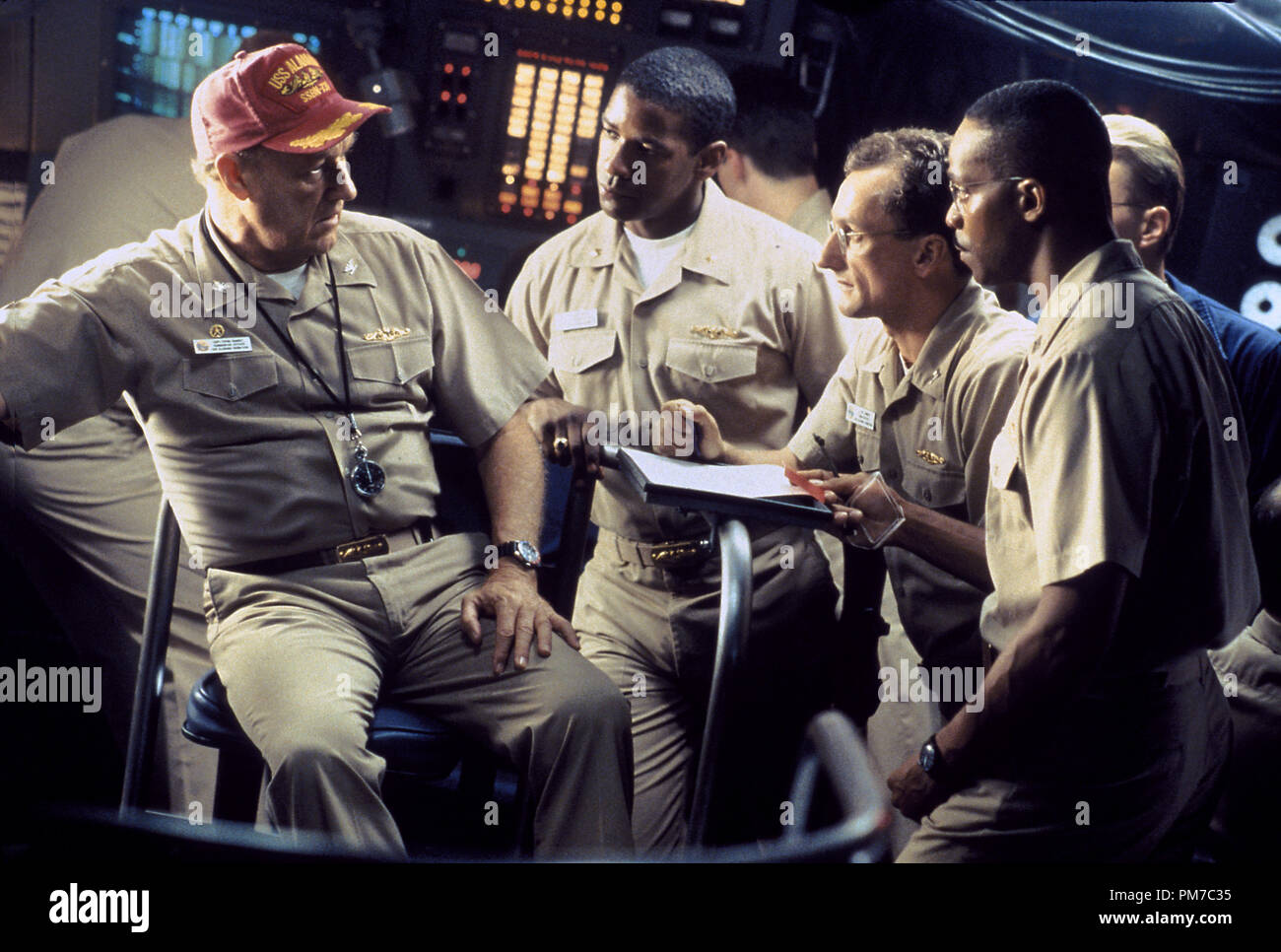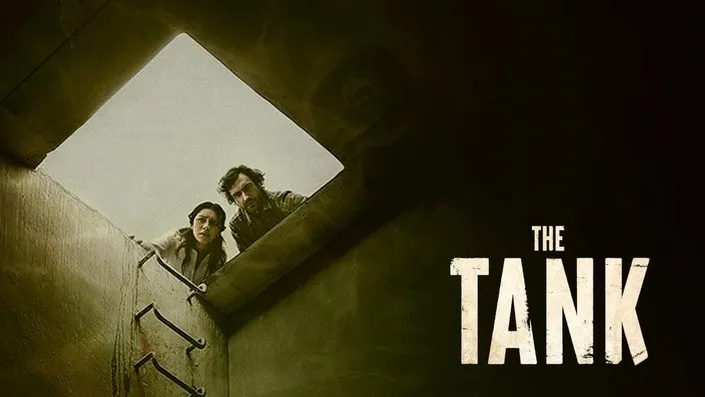“Below the surface, there are no heroes—only decisions that live forever.”
There are depths beyond fathoms and silences deeper than sound. In The Crimson Tide (2025), director Jonathan Glazer (Under the Skin, The Zone of Interest) takes the familiar claustrophobia of submarine warfare and transforms it into something mythic, almost hallucinatory. This isn’t just a film about command and protocol—it’s a film about the war we wage inside ourselves when morality and survival no longer align.
A reimagining rather than a remake, The Crimson Tide (2025) borrows its bones from the 1995 Tony Scott thriller but strips away the patriotic polish. What remains is an anatomy of control, perception, and the slow dissolution of authority under pressure. It’s a story that dives into the pitch-black between trust and betrayal, where every second without information is a lifetime of doubt.
Set in the near future, the world stands at the edge of nuclear confrontation. A rogue splinter of a collapsed Eastern bloc has seized nuclear silos, threatening retaliation unless sanctions are lifted. Deep beneath the Arctic ice, the USS Leviathan, a Virginia-class attack submarine, prowls the abyss, carrying enough warheads to wipe continents from memory. But when communication with high command is severed, the chain of command shatters—leaving two men in absolute opposition, surrounded by silence and steel.

Commander Julian Marrick (Denzel Washington, returning in a bold reinterpretation of his original role) is now older, more haunted, a man weighed down not just by experience but by decades of knowing how close the world has come to ending. He is methodical, philosophical, and deeply human—qualities seen as dangerous in an environment that demands certainty.
Opposite him stands Lt. Commander Rhys Calder, portrayed with icy intensity by Tom Hiddleston. Calder is young, brilliant, and surgically logical, a man who believes in protocol more than people, in orders more than judgment. Their relationship is not just tense—it is tectonic. Every word exchanged is a subtle act of war.
Glazer directs like a man sculpting pressure. The film moves with eerie stillness, intercut with sudden, jarring ruptures of violence: a steam valve exploding, a crew member screaming in flooded silence, the slow flicker of emergency lights that seem to pulse in time with rising paranoia. The sound design is suffocating—metal groans like bones under weight, sonar pings echo like heartbeats lost in black water, and silence becomes a force of its own.

Visually, the film is both stark and surreal. DP Łukasz Żal bathes the interiors of the Leviathan in sickly greens and flickering reds—like a heartbeat struggling to keep rhythm. Faces glow ghost-like against control panels. Sweat glistens like oil. Glimpses of the outside world are almost sacred—abstract patterns of light bending beneath the ice, the shimmer of missiles sleeping in their tubes, waiting.
But the real battleground is the moral one.
When a fragmented message is received—an order to launch, followed by static—everything begins to fracture. Marrick hesitates, seeking confirmation. Calder pushes for action, claiming delay is treason. Around them, the crew begins to splinter into factions. Trust disintegrates. The Leviathan becomes less a vessel than a crucible, melting down certainty until only fear and instinct remain.
Marrick is not a flawless hero. He is tired, sometimes indecisive, carrying the ghosts of failed missions. Yet his refusal to act without clarity is what gives the film its tragic gravity. In one quietly devastating scene, he sits alone in the torpedo room, listening to an old recording of his daughter playing the cello, the low hum of the submarine vibrating beneath it like a second, darker melody.

Hiddleston’s Calder, meanwhile, is not a villain—he is terrifying because he is right, at least in theory. If they do not strike first, they may die. But in Calder’s eyes, humanity is secondary to efficiency. His coldness is a weapon forged by training, not cruelty. As the crew begins to unravel, it becomes clear: this isn’t a fight between good and evil. It’s a fight between doubt and conviction, between mercy and annihilation.
The Crimson Tide (2025) is a film that dares to be still, that lets tension bloom like mold in damp corners. There are no soaring scores or action-packed montages. There is only time stretching, tightening. The idea that the end of the world might come not from malice, but from two men who each believe they’re doing the right thing.
By the time the final moment arrives—an unsent missile, a final breath, a quiet surfacing into mist—you are left not with relief, but with reflection. This is not a film that celebrates its own tension. It grieves it.
The Crimson Tide (2025) is not a war film. It’s an echo chamber for modern uncertainty, where the question isn’t “Who’s in charge?” but “Can anyone still be trusted to be?” In the deep, no one hears the arguments—only the consequences.



-1754558264-q80.webp)